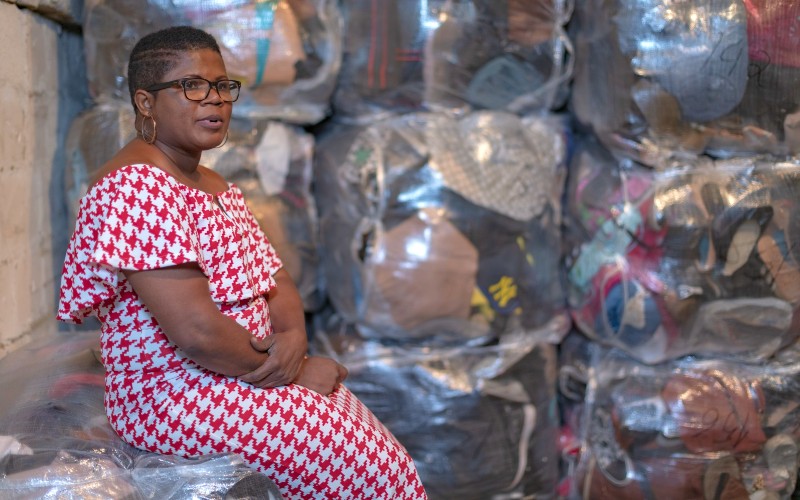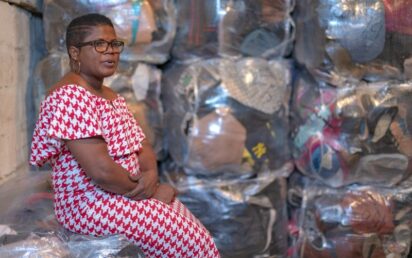Are you tired of investment stories which focus on market potential and the return for investors?
You may have noticed that the narrative is beginning to change with the rise of GreenTech and socially conscious younger generations which are increasingly prioritising ethics and community action.
However one investor has held this focus for the last 25 years: Key Fund began in South Yorkshire in 1999 in response to the collapse of the coal and steel industries. A social enterprise itself, it was founded by like-minded social entrepreneurs and philanthropists to breathe life back into its communities by supporting new enterprises.
Key Fund, which says it supports social or community organisations who work to create positive social or environmental impact – as well as profit – has awarded £49.4 million in loans and £23.3m in grants to date.
This has created or sustained an estimated 3,000 businesses and over 4,000 jobs, with a total £370m impact.
Now the social investor, which operates across the North and the Midlands, is actively seeking to support social entrepreneurs from ethnic minorities.
“Key Fund has a long history of reaching the most disadvantaged places, but we’re aware the most marginalised groups in these places have traditionally been unable to access finance,” said CEO Matt Smith.
“Our mission to create successful communities can’t work if there are people still left behind. There is a profound need, and we have to step up to meet it.”
Among Key Fund’s many investments is Africawad, a startup founded by Afi Dometi, who came to the UK as an asylum seeker when her life was in danger in West Africa.
An accountant by trade, she learned English and worked in hotels and kitchens while studying for a business degree before setting up Africawad, which recycles and sells clothes, in a deprived area of Newcastle.
Dometi’s goal was to help fellow women who struggled with the work and language barriers that she had. Her business supports over 20 women into education or employment in the UK each year, and saves 300,000 kilos of unwanted clothes from landfill.
It also finances women in Africa to create their own micro businesses in the second-hand clothes sector to break the cycle of poverty, and pays for the tuition of dozens of school girls in Togo each year.
“If women have education, their children will have education too; it will help the continent, it will stop war, it will stop immigration, it will stop dictatorship,” said Dometi.
Key Fund’s move to support BAME founders is in response to ongoing research from the Black United Representation Network (BURN) that shows only a fraction of ethnic minority businesses in Manchester are accessing and securing investment.
The groundbreaking study concluded productivity could be boosted by almost £4 billion in the Manchester region alone if steps were taken to dismantle the barriers Black and Asian business leaders face.
One million of the six million businesses in the UK are minority owned, yet people from minority groups face greater exclusion from the financial system, according to the Minority Businesses Matter Report.
“We pride ourselves in getting the right money into the right hands at the right time,” said Smith. “We need to do more to address shocking discrimination.
“If you’re a social entrepreneur who has been turned down by your bank, or struggled with cultural or language barriers, our door is open. Please talk to us.”
Barriers include discrimination, and the lack of customised business and application support, delivered by diverse providers.
Dr Marilyn Comrie OBE, an award-winning social entrepreneur and founder of BURN, said: “Understanding the specific barriers that ethnic minorities face is a crucial first step in creating solutions that can overcome long-standing racial inequities.
“We’re thrilled that Key Fund, as leaders in the social investment sector, has recognised this issue, and look forward to working with them to help our economy be one where all can thrive.”
Key Fund’s commitment to inclusivity will feature a series of workshops aimed at ethnic minority social entrepreneurs, offering translation services as required. It is actively championing its existing BAME clients in the hope to inspire others.
Key Fund investees in the last year include Highway Hope in Manchester, which has grown into a social enterprise hub, with discount food stores, a beauty salon for ethnic minorities, IT hub, re-use furniture store and educational programmes. Key Fund invested £19,200 in loan and £5,800 grant in 2023 to help its CEO, Esther Oludipe, develop its community café.
It also invested in Toranj Tuition to allow them to purchase their own building and become more sustainable. Established by three Iranian nationals in Hull 20 years ago, it supports qualified migrants to re-enter their professions in the UK, and runs educational programmes for children from deprived backgrounds.
‘Investors & entrepreneurs told me to leave Leeds for London’


